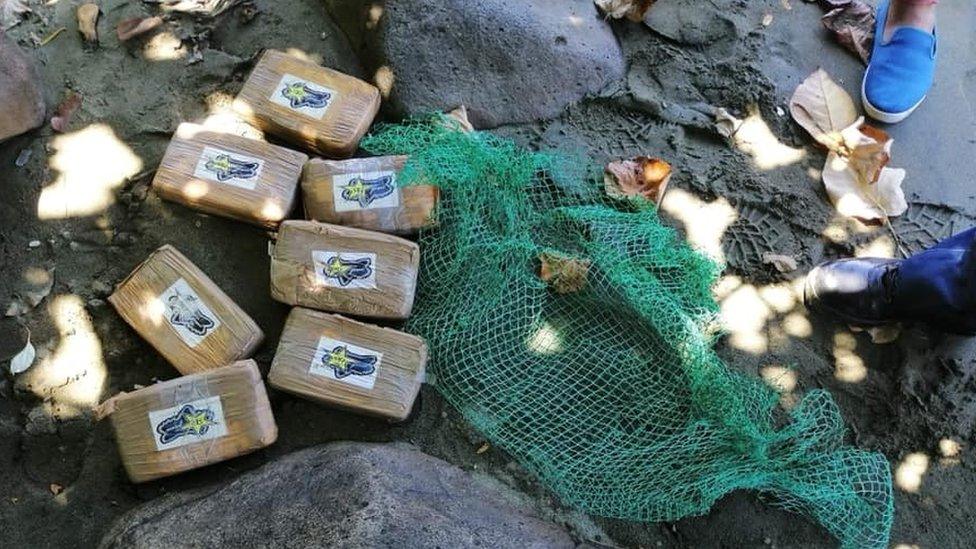Duterte's health: 'Work from home' raises questions in Philippines
- Published
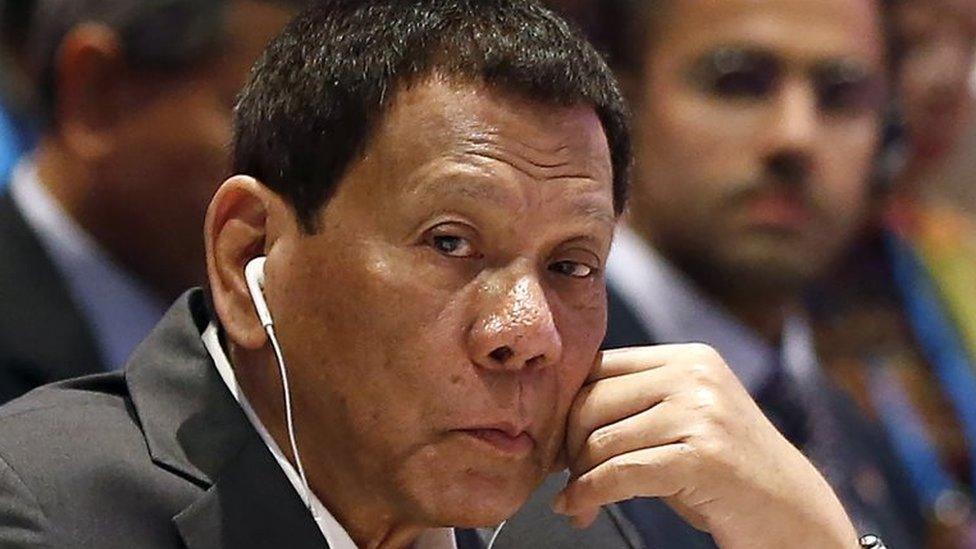
Rodrigo Duterte at the Asean summit in Thailand earlier this month
Philippine President Rodrigo Duterte is famous for his strongman persona.
His nickname is "The Punisher" because of a widely-held perception that he is tough on crime.
But since coming to power in 2016 he has been dogged by rumours about his health.
Concern was raised again this week after his spokesman announced the president was taking three days' "rest".
Salvador Panelo later clarified that the 74-year-old would not be on leave, but would work from his home in the southern city, Davao.
So are the recent health concerns making Filipinos question his strongman status? And what would happen were he not fit to lead the country?
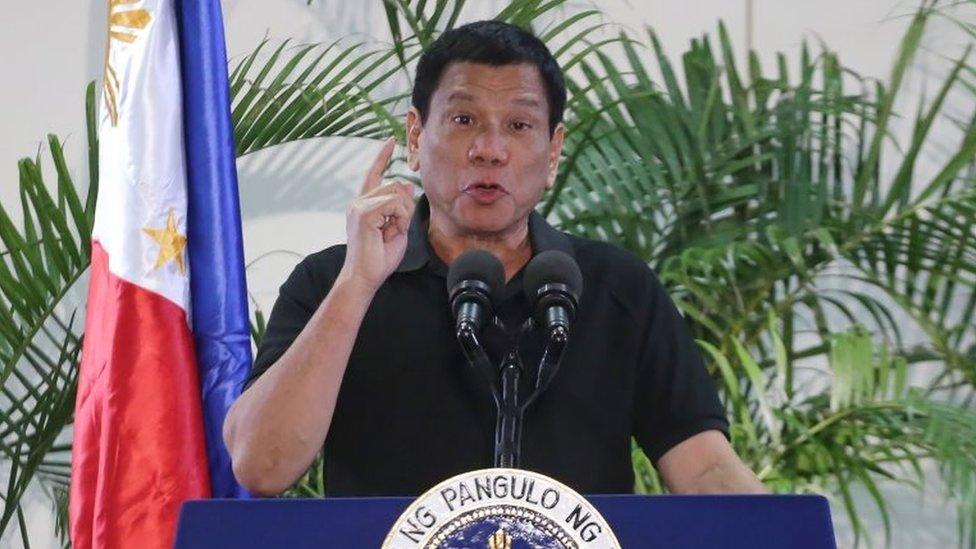
Mr Duterte in 2016
When asked by BBC News why the president was working from home this week, Mr Panelo said he "wants to have fewer distractions… he needs to have some rest too".
"If he's working in the Malacanang [presidential palace] so many people want to talk to him," Mr Panelo added.
But rumours about President Duterte's health have swirled since he took office in June 2016, driven by his reputation for occasionally skipping official events and meetings.
Last year it was revealed that doctors had found a suspicious growth inside Mr Duterte during an endoscopy.
"I will tell you if it's cancer," Mr Duterte said at the time. Test results later found that the growth was benign.
During a visit to Russia in early October, the president told a gathering of Filipino expatriates that he was suffering from myasthenia gravis, a rare autoimmune disease that, according to the president, causes one of his eyelids to droop.
Weeks later Mr Duterte fell from a motorcycle and hurt his back following a late-night ride around the palace grounds in Manila.
"Unbearable pain" from the accident forced him to cut short an official trip to Japan, according to his most-trusted aide, Senator Bong Go.
Mr Duterte was pictured at the time leaning on a walking stick alongside his daughter Sara and a concerned-looking Senator Go.
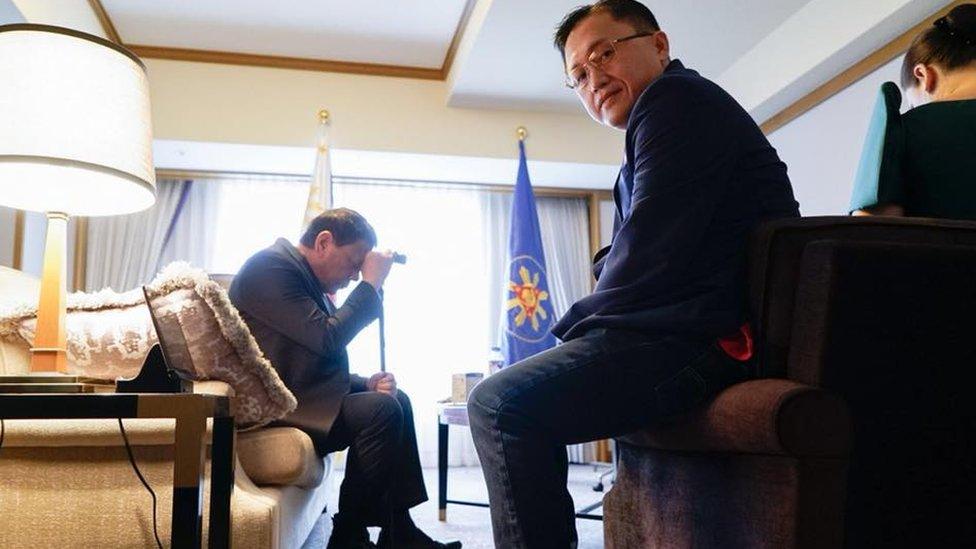
Mr Go and Mr Duterte leaning on his cane
Mr Panelo says that Mr Duterte has recovered from the accident. He said his health is "good," adding that the president looks "very normal, he is walking briskly and talking a lot".
But videos circulated on social media of the president appearing uneven on his feet before the accident.
During his third "State of the Nation" address in 2018, I noticed that Mr Duterte appeared more frail than usual, and his speech was less bellicose than in previous years.
He mostly stuck to the script, rather than unleashing his usual fiery ad-libs, and when he finished the speech he appeared to hold onto the wall as he left the stage.
Mr Duterte's inner-circle have regularly rebutted claims that he skips meetings because of ill health.
In November 2018, Mr Panelo said the president had missed four Association of South East Asian Nations meetings in Singapore because he had to take "power naps".
Last week the Secretary of Foreign Affairs of the Philippines, Teddy Locsin Jr, even became embroiled in a row on Twitter after he swore at a journalist for pointing out the president's absence from another Asean event, this time in Thailand.

More from the Philippines

The Philippine constitution stipulates that the public must be informed of the state of the president's health in case he has a "serious illness".
If a serving president becomes incapacitated by an illness, power would pass to the vice president.
That would mean Leni Robredo - a Liberal Party politician and a fierce critic of the president's rule - would take over.
Ms Robredo angered Mr Duterte in October when she said his core policy, the war on drugs, "obviously wasn't working".
Thousands of alleged drug users and dealers have been killed under controversial "buy-bust" police operations.
The government says the public overwhelmingly approve of Mr Duterte's drug war because they say street crime has fallen.
Angered by the vice president's comments, Mr Duterte handed over control of the drug war to Ms Robredo and challenged her to do a better job.
Ms Robredo took on the challenge and has called for an end to the "senseless killings" and to focus on a holistic, health-based approach to fixing the country's drug problem.
So far the public has been largely supportive of the move, raising Ms Robredo's profile as a capable leader.
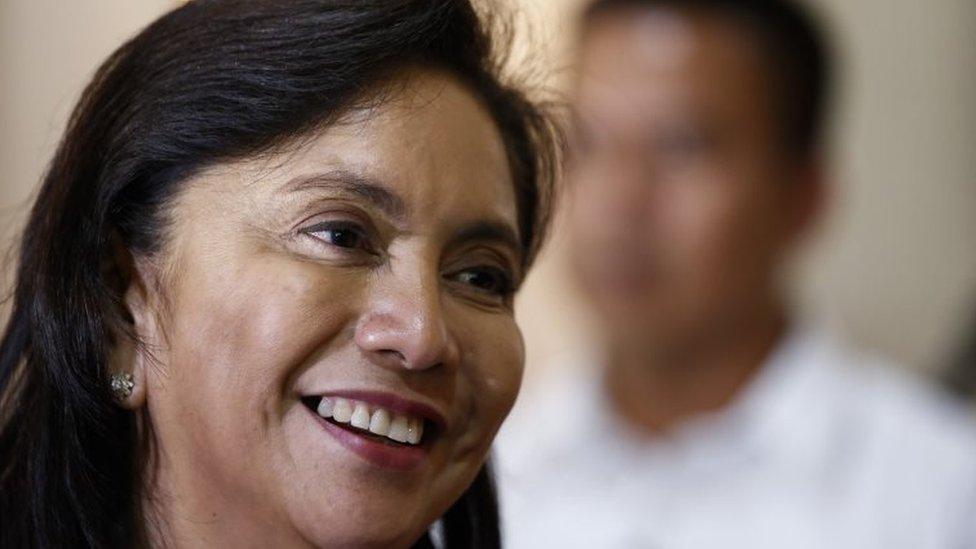
Philippine Vice President Leni Robredo in October
News of the president's three-day hiatus has filled newspaper columns and rolling news channel bulletins, but it hasn't dented his popularity or his image as a strongman.
Mr Panelo says the president has always been transparent about his health issues - and that the Philippine public have nothing to worry about:
"What I've noticed about [President Duterte], when he doesn't have eight hours' sleep, when he walks he looks wobbly," said Mr Panelo.
"But when he does, he is firm and strong and the aura in his face is good. All he needs is… a regular number of hours of sleep."
Trump v Duterte - who said what?
- Published11 March
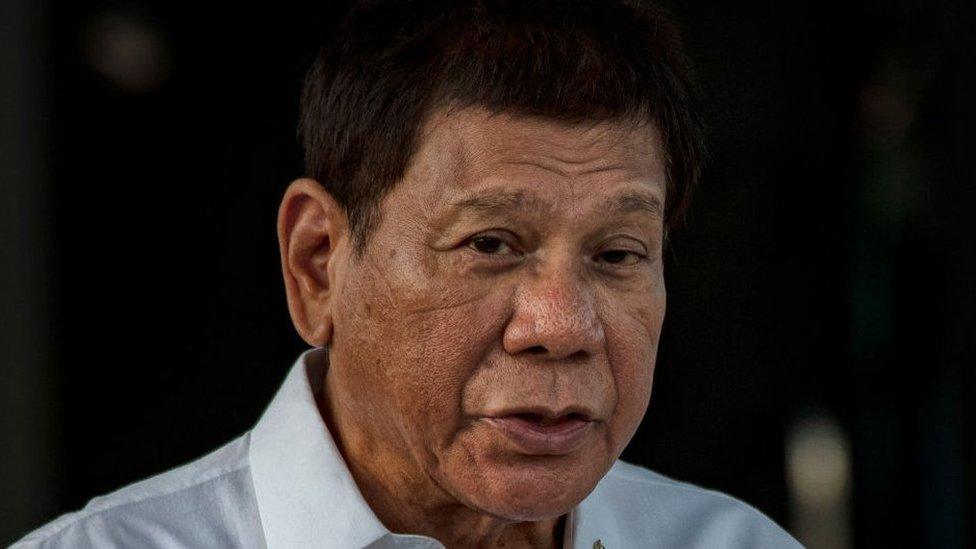
- Published12 November 2019
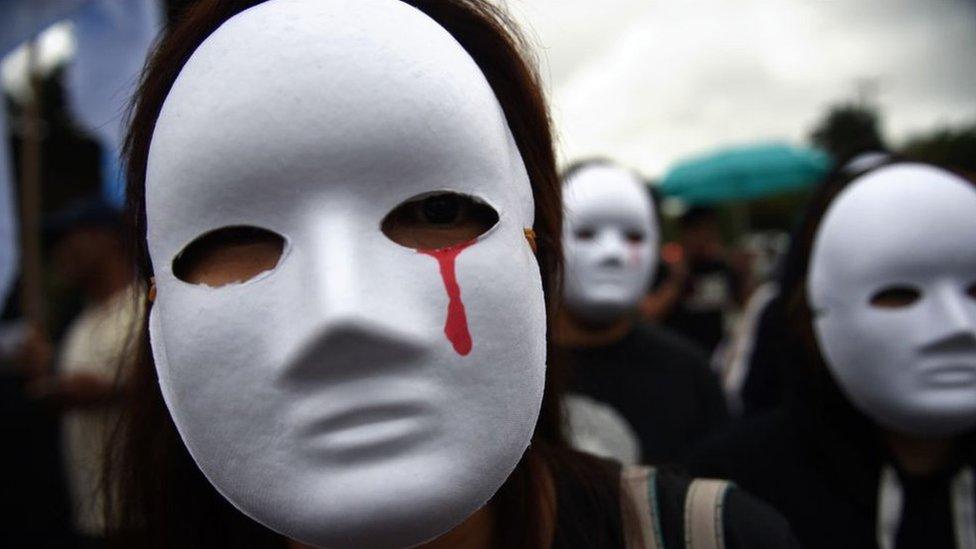
- Published9 July 2019
